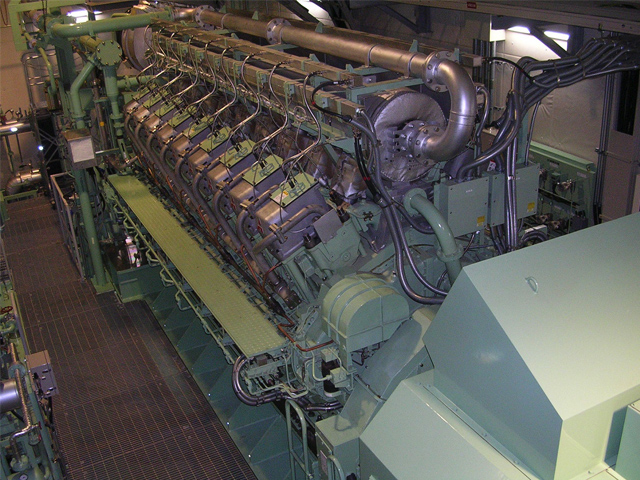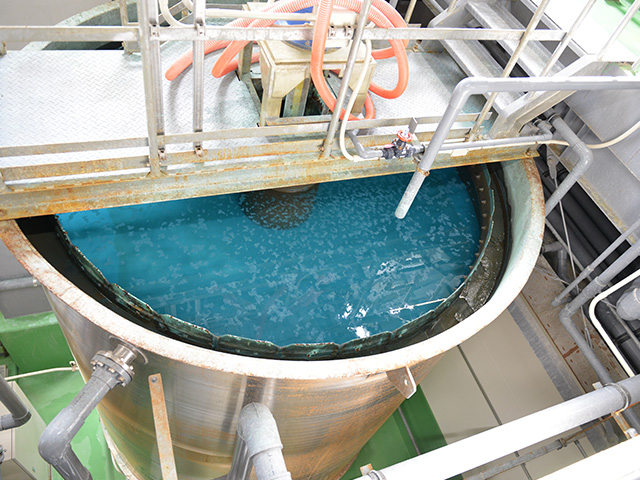FUKUDA is committed to environmentally-friendly corporate activities in accordance with ISO14001.
Environmental Policy
Fundamental Policy
Engage in corporate activities that protect the global environment.
Environmental Policy
Strive to prevent environmental pollution and develop environmentally friendly products, including decarbonization measures.
Establish, implement, and maintain an environmental management system, set environmental objectives and targets, and periodically review them for sustainable development.
Three Rules for Activities
(1) Reduce resource and energy consumption.
(2) Reduce the amount of industrial waste and environmentally hazardous substances.
(3) Improve measures and equipments to achieve these targets.
Cogeneration System

A gas engine cogeneration system fueled by clean natural gas was installed at the Kyoto Factory in 1989. That system was replaced with more efficient system in 2007.
Saves Energy
Fuel usage was Reduced by 21%*.
Reduces CO2 Emissions
CO2 emissions were reduced by 3,600 tons per year*.
* : These are comparative values with the pre-renewal facilities.
Wastewater and Waste Material Treatment

Wastewater Treatment
Water collected from the production line is recycled using an ion-exchange treatment system. That system now treats 65 % of all the water used at the factory. Furthermore, all effluent water is treated in a comprehensive wastewater treatment system to ensure it is harmless before being released.
Waste Material Treatment
FUKUDA strives to minimize waste by pursuing efficient manufacturing methods.
We are committed to complying with all legal requirements related to waste.
